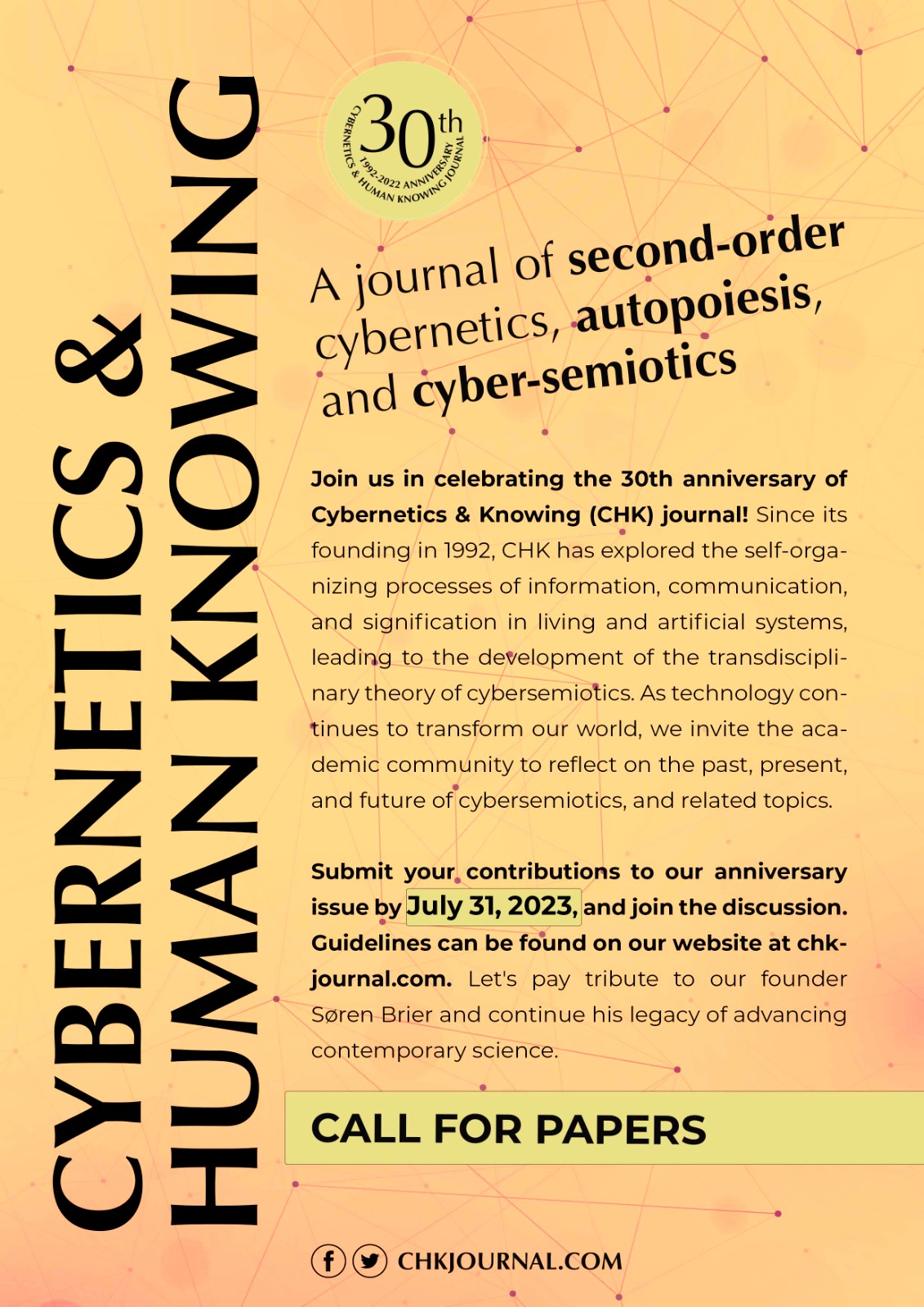Join us in celebrating the 30th anniversary of Cybernetic and Human Knowing Journal (CHK) and honoring its founder, Søren Brier, by submitting your contributions to our anniversary issue!
Since its inception, the journal has covered a wide range of topics, including first and second-order cybernetics, information theory, biosemiotics, autopoiesis theory, logic, systems thinking, and semiotics, among many others. Its main goal has been to understand self-organizing processes of information, communication, and signification in living and artificial systems, as well as human cognition, through the lens of second-order cybernetics and autopoiesis. These theoretical foundations have led to the development of cybersemiotics, a transdisciplinary theory of cognition, communication, signification, and information in all of its manifestations.
Cybersemiotics is one of Søren Brier’s most significant contributions to contemporary science. He argued that the meaning of information cannot be fully understood without considering the process of signification, and proposed a transdisciplinary framework that integrates cybernetics and a theory of signification. Such a framework must also include theories about biological and social systems, as cybernetics addresses the circularity of differences in self-organized systems.
Brier’s framework explores our understanding of organization and information in human, artificial, and natural systems, as well as our understanding of cognition within the natural and social sciences, humanities, computer science, life sciences, and other fields. It has broad applications in social practices such as art, design, education, organization, teaching, medicine, music, politics, and management.
Over the last three decades, these topics and frameworks have evolved, and new approaches have emerged. Technological development has greatly influenced the transformation of social and natural environments, leading to the development of new theoretical and methodological approaches, and the emergence of new social, biological, and artificial phenomena. We invite you to reflect on the implications and expansion of cybersemiotics and related fields, as well as the main theoretical, ethical, biological, social, or artificial problems that we must address in the future.
Guidelines for submissions can be found on our website, and all papers must be sent to the Editor, Carlos Vidales, at carlos.vidales@academicos.udg.mx by July 31, 2023. Let the discussion continue.
